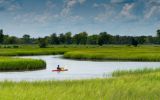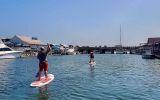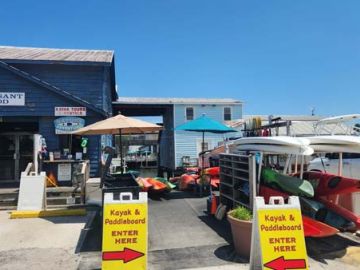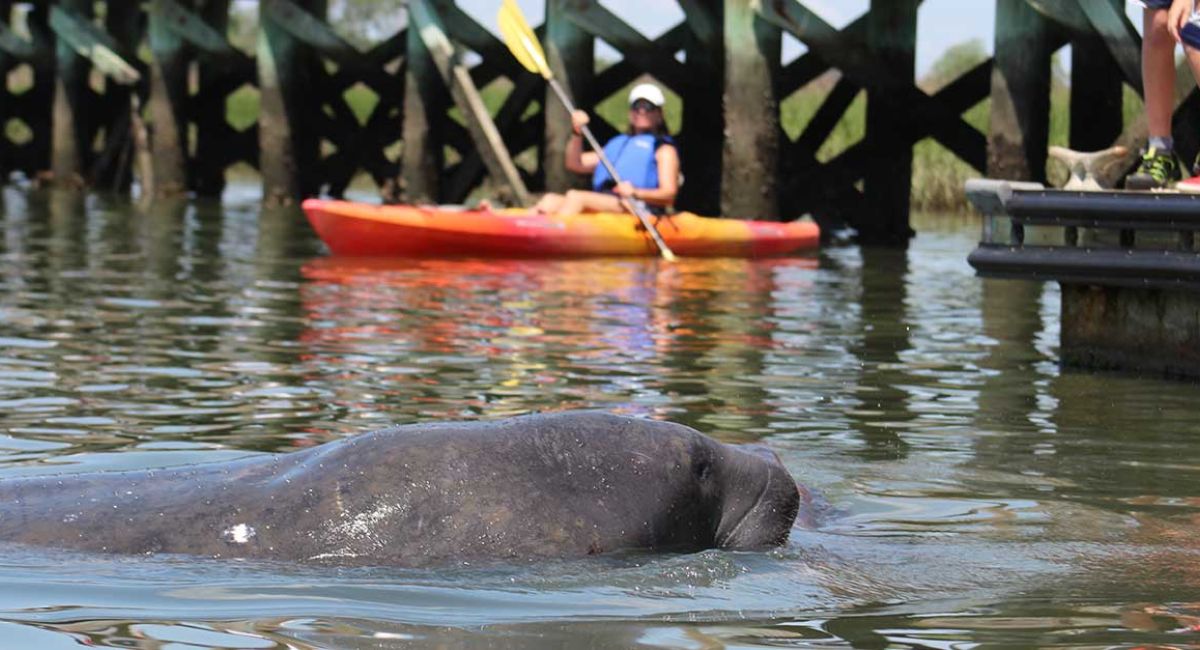
Are There Manatees In Charleston?
Have you ever seen a manatee up close? Those hulking creatures of slow swim exhibit the graceful dance of a ballerina on water and are often lovingly referred to as sea cows. Many believe these animals to be the basis of the lore of mermaids, the way they slightly rise out of the water and glide along, tail lazily swishing beneath the surface of the water. If you’ve been lucky enough to go kayaking or paddleboarding on Shem Creek in the summertime then you’ve probably had the chance of a lifetime: a close encounter with these endangered sea creatures of the South. Their puppy-like faces and serene behavior are a delight to witness, and each time the weather and water warms to a cool 70 degrees we here in Charleston get our chance.
An estimated population of 6,000 puts the manatees under protection of both federal and State law, and yet every year about 50 or so of these magnificent beasts can be found migrating up the coast to our beloved waterways--such a small number which makes each encounter magical. As temperatures rise, a small aggregation of manatees migrate up the East Coast from Florida, willingly navigating the oft treacherously overly-populated channels, to find a new home for the summer. Scientists believe a growing population is the reason that more and more manatees have decided to make the trek each year. As the years have gone on, manatee sightings have moved further up the East Coast, with sightings as far north as Cape Cod in Massachusetts. The popularity of water sports and an influx of boat traffic in the waters of Florida add additional hazards the manatees must avoid, making it a wise decision to move up and out of the way.
Manatees must remain in warm water to survive; when the temperature drops below 70 degrees they put their life at risk. You will often see them migrating further South en mass as the water temperatures drop. This attraction and need for warm water poses an unforeseen risk when there is warm water runoff from docks. In our own Cooper River manatees have been known to be drawn to the industrial discharges of water that has been warmed as it's used to cool equipment, such as happens at KapStone Paper and Packaging mill. Just last year 10 manatees were found to be stuck on their migration back home, having stayed too long in our waters due to the warmth of these runoffs and missing their opportunity to migrate in naturally warm waters. It took scientists, volunteers, and a number of both South Carolina and Florida agencies, including Sea World Orlando, 3 days to rescue and return 9 of the manatees to their home waters. One was transported to the Jacksonville Zoo, a female exhibiting mild cold stress. During this particular ordeal these manatees were tagged before being released, which has allowed us to confirm that they returned to our waters this year.
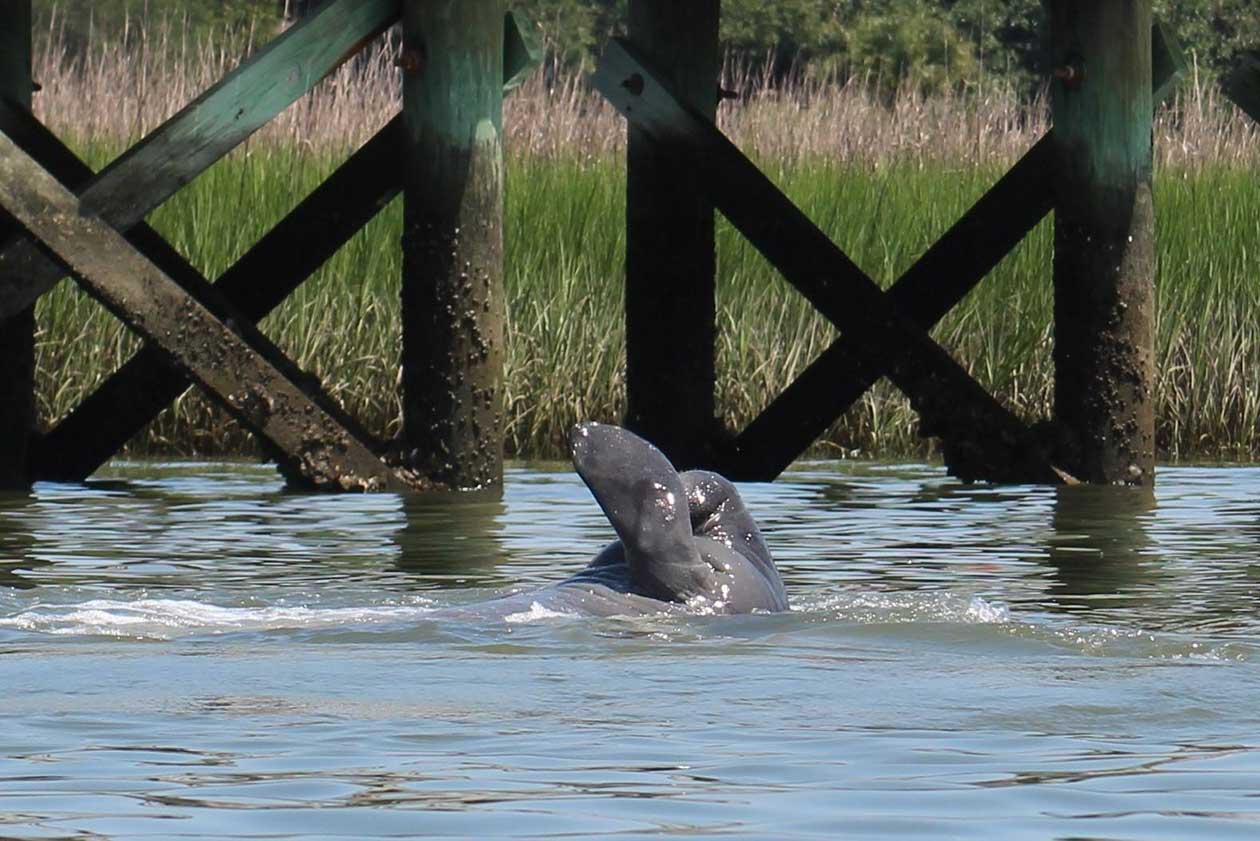
Manatees are creatures of habit, living with their mothers for the first 2 years of their lives. This gives us an explanation as to why the manatees, who were trapped and very likely could have died, would choose to return to the same spot it all happened. Or maybe, like us, they know that there is no better place to be than Shem Creek in the Lowcountry. So if you are in the area grab yourself a Charleston kayak rental and you might be lucky enough to catch a glimpse of one of these amazing animals floating by you on Shem Creek.
SC DNR requests that you Submit your sightings and photographs of live manatees online here. Please note the date, time, location and number of manatees seen, as well as the coordinates, if possible. Photographs of scars on manatees' backs and tails are useful, because they can often be used to identify previously known individuals – however, manatees should never be approached by boat to obtain pictures. Goose and other manatees fitted with radio transmitter tags have what looks like a belt attached around their tail. These trailing tags are harmless to the animals and are designed to break free or eventually fall off. Report an injured or dead manatee by calling the DNR hotline at 1-800-922-5431.





